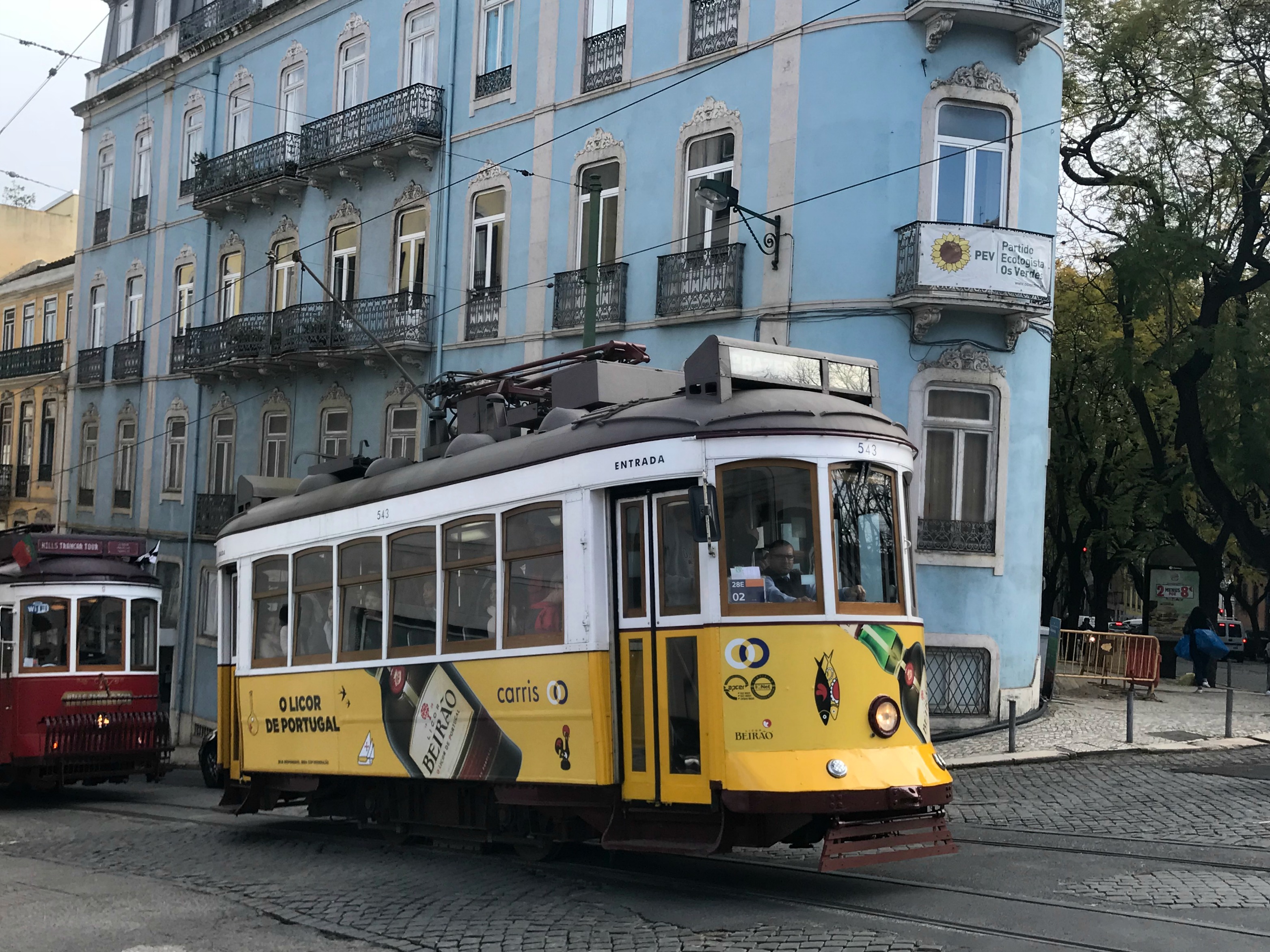
Are you thinking of visiting Lisbon, Portugal? We loved our trip to Portugal’s capital city and highly recommend it as a destination for your next European vacation. The charming cobbled streets, brightly colored, tiled buildings, fantastic food and breathtaking views are just a few of the reasons Lisbon should be on your bucket list. If visiting for the first time, we put together a list of 10 things to know before visiting Lisbon. We’re sure you’ll fall in the love just like we have.
Don’t miss our post on things to do in Lisbon. We guide you though 16+ adventures such as where to find the panoramic view points, visiting a castle and palaces, eating delectable Portuguese tarts, and riding the famous wooden tram. We also share some great restaurant recommendations.
10 Things to Know Before Visiting Lisbon, Portugal
1. The language in Lisbon is Portuguese –
You should try to learn at least a few words in Portuguese before your trip. You’ll notice a lot of similarities with Spanish, so it can be helpful if you have some background with the Spanish language.
Many people we encountered spoke English. This won’t necessarily be true in the villages, but you will find a lot of English in the major cities.
Hello: Olá
Good Morning/afternoon/evening: Bom dia/tarde/noite
Good Bye: Adeus
Please: Por favor
Thank you: Obrigado
Yes: Sim
No: Não
*Brazilian Portuguese has differences. For instance, K was told by his Brazilian friend the word for “hi” was “Oi”. Our taxi driver got a good laugh that I used to wrong word. In Portugal hello is “Olá” and pronounced the same as the Spanish, “hola.”
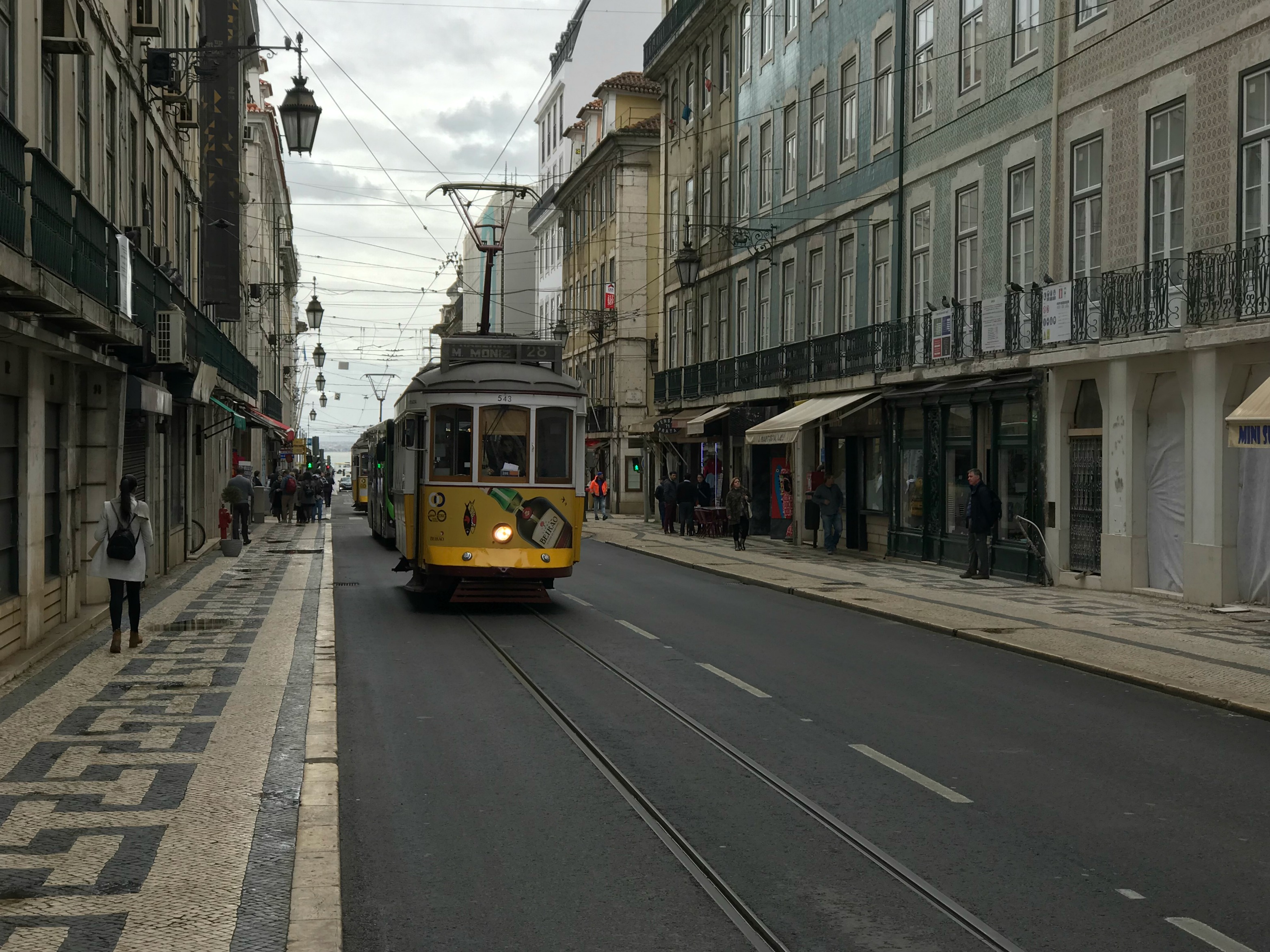
2. Beware of Pickpockets!
You should always be vigilant when traveling and especially watch your wallet, backpack and purse while on public transport. Lisbon, in particular, does have a problem with pickpockets, so mind your belongings!
I’m still trying to figure out if I actually witnessed a woman “making her move” as we were getting off the Eléctrico 28. She appeared to be Roma, was well dressed, had her jacket oddly draped over her entire arm, was standing unnecessarily close to another passenger, and just gave me this weird vibe.
3. Wear comfortable, non-slip shoes –
Lisbon is the city on 7 hills, so you need shoes that won’t slide as you’re walking up (and down) some of those steep inclines. My boots were cute, but didn’t have enough grip for those rain slicked cobbled streets.
4. Try the Cod –
Everywhere you go, cod will be the fish to eat. It’s served many different ways, but you should try a codfish cake at least once.
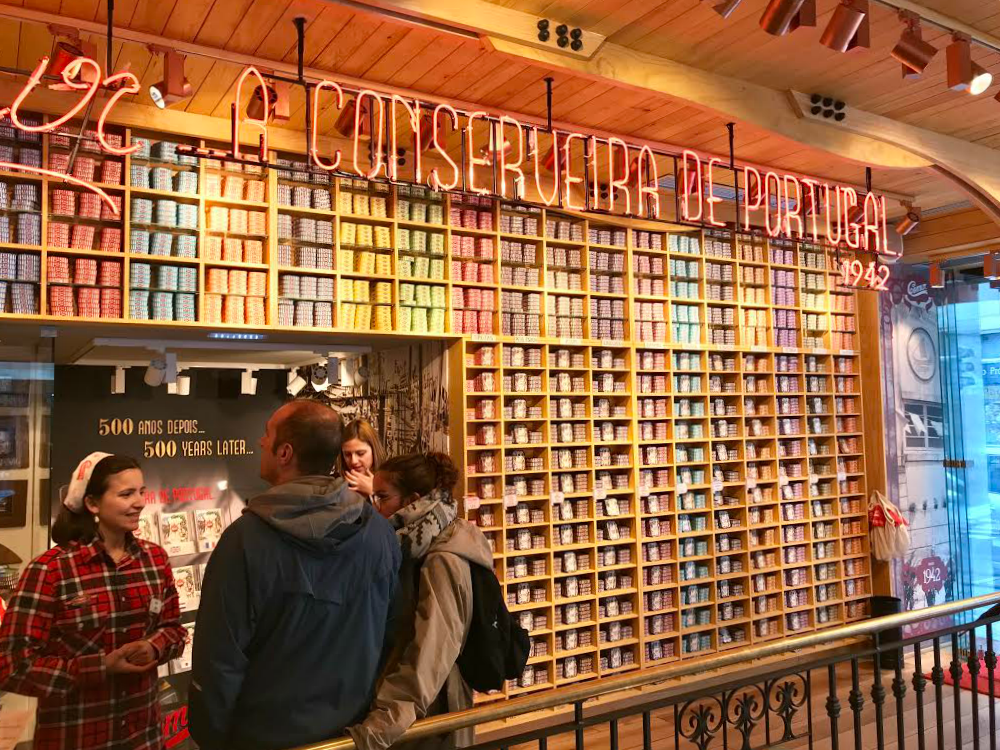
5. Visit the tin shops –
There are entire stores dedicated to the sale of fish in a tin. They make great gifts and are just cool to check out. Our favorite shop was Comur-Conserveira de Portugal, not only because the tins were cool, but they allowed you to sample the products. Why buy cans of something if you have no idea what the contents tastes like? Another cool shop was The Fantastic World Of Portuguese Sardines with cool tins commemorating each year, but you couldn’t sample those before purchase.
6. Buy Cork –
You’ll find cork products for sale all over the city as well. Why? Portugal produces approximately half of the world’s cork! Pretty much everything you can think of can be made of cork. We purchased a cork postcard, change purses and Lucy even bought a cork backpack.
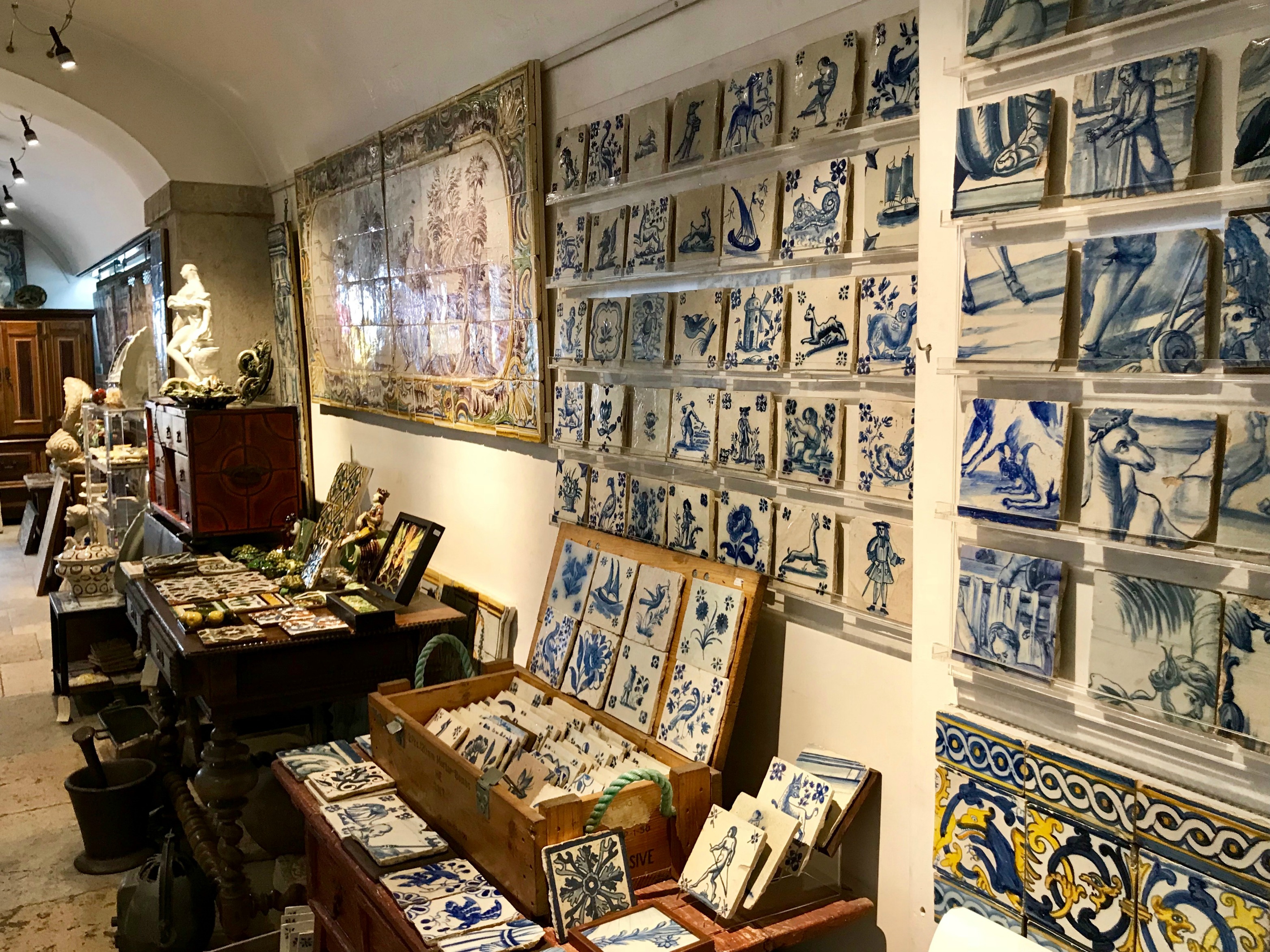
7. Visit a tile shop –
Portuguese tile is spectacular and there are a ton of shops that sell tile dating as far back as the 15th century. Those pieces are rather expensive, but tile from the 19th century is more budget friendly. If you want to skip the temptation of the stores, just stop to admire the tile work on the buildings. Some is simplistic in the design and others are quite elaborate.
We visited many shops during our visit, but the favorite was D’Orey Tiles.
8. Drink Port and Ginjinha –
Portugal is known for it’s Port but another popular adult beverage is Ginjinha, a cherry liquor, that is served as a shot with a piece of fruit at the bottom. You may even find it in a chocolate cup!
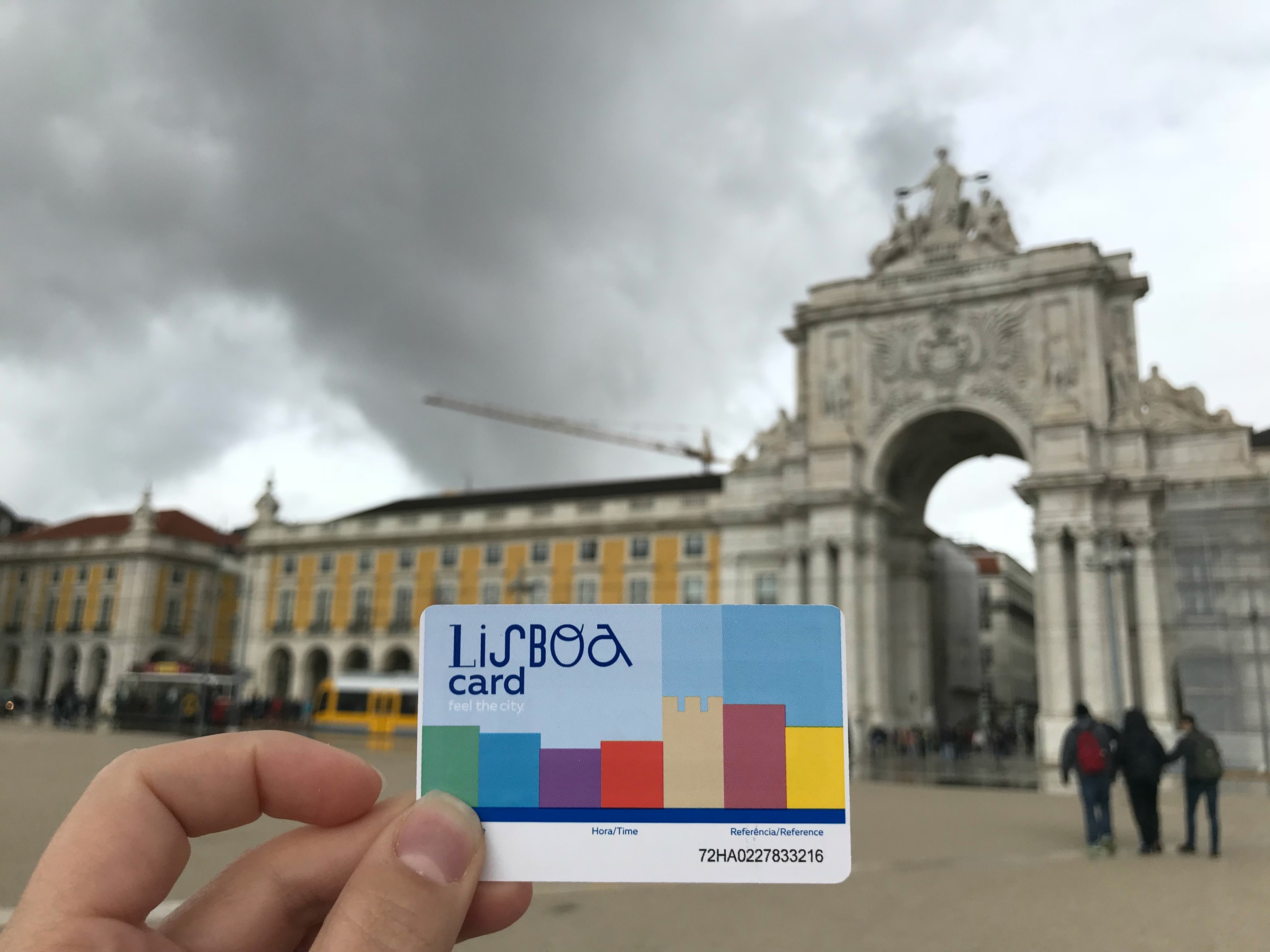
9. The Lisboa Card will save you money –
Read our Lisboa Card review. It will save you money and includes public transportation.
10. Fado is an essential part of Lisbon’s culture –
Fado is a form of Portuguese singing dating back to the 1820’s. A great place to see a short concert is at Fado in Chiado. There are restaurants where you can enjoy this type of Portuguese music while having a meal, but you’ll need to plan a few hours for this experience. We preferred the family-friendly 50 minute option.
**During our research of the city, many visitors reported being constantly harassed to purchase drugs. We didn’t experience this side of the city. Derrick was approached once but a simple “no” had the man moving along. I don’t know if this was because we were traveling as a family or weren’t out late taking part in the nightlife. This is something visitors should be aware of, but it wasn’t an issue for my family.
There are so many things to love about Lisbon’s food, culture and history. This captivating city along the Tagus River should be added to your next European adventure. Learning a bit of Portuguese, trying cod, visiting a tile shop and listening to Fado music will just add to the experience when visiting Lisbon.
Have other tips? eLeave a comment.
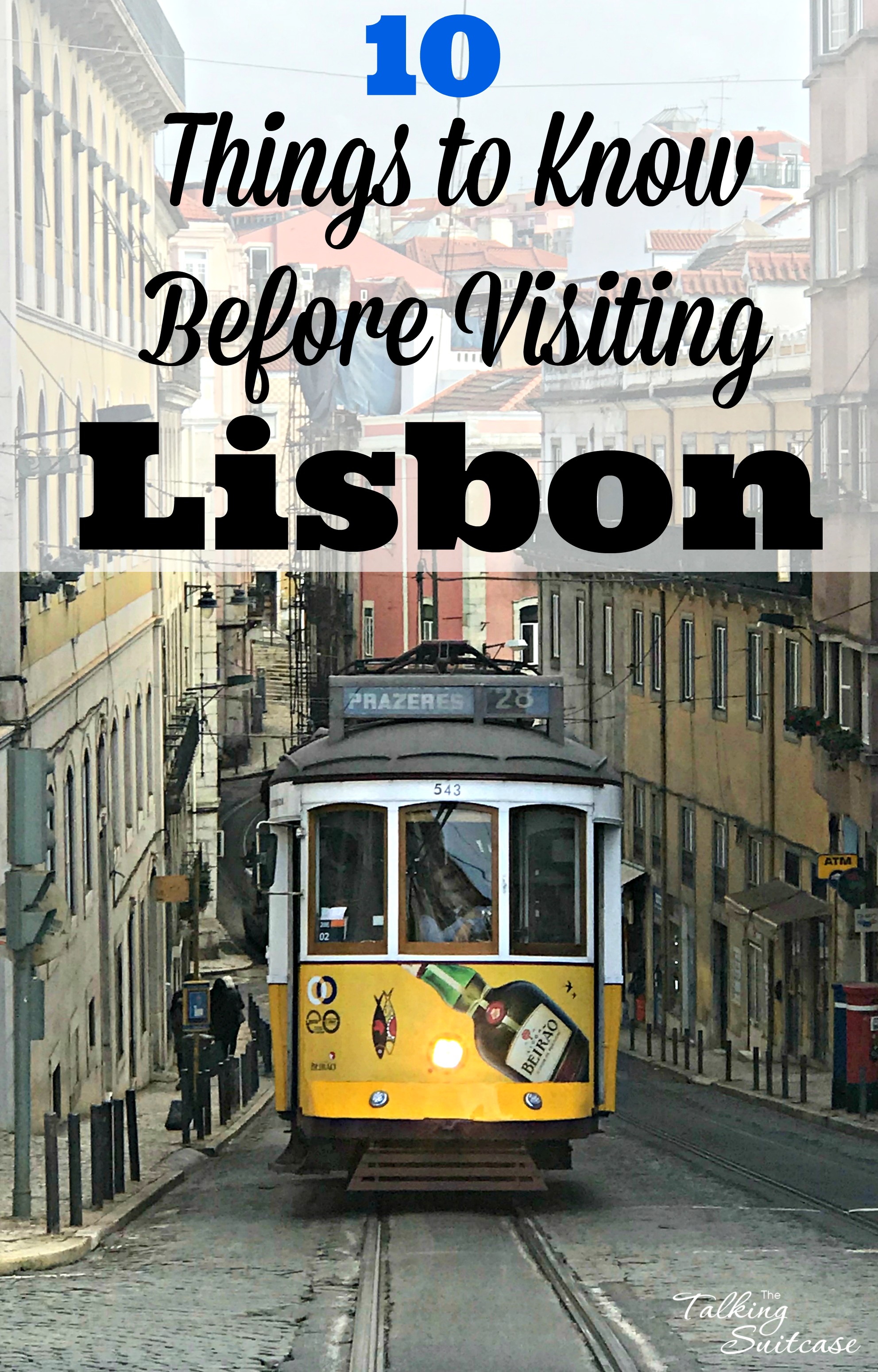

Thanks for correcting my spelling error and letting us know about the fake drug deals! I’ve updated the post.
Hi, I feel awkward leaving a comment here when this post’s been published nearly 1 year ago – but I will do it anyway, for anyone who reads this post in the future!
I was born and raised in Lisbon and I’m so glad you’ve enjoyed the city – however, there are two things I must point out:
1- regarding “8. Drink Port and Ginginja”, the second drink is actually called “Ginjinha”, not “Ginginja”. It’s called that way because “ginja” is what we call the fruit this liquor is made of, and “Ginjinha” is the diminutive form of that word.
We may also call the liquor “Ginja” or “Ginginha” instead.
2- About harassment from drug dealers: those drug dealers are generally fake. What do I mean by “fake”? I mean these are people who pretend they’re selling marijuana when actually what they have is aromatic herbs such as oregano.
Selling drugs is a crime in Portugal, although doing drugs is not (personal drug consumption has been decriminalized, so you can get away with smoking pot if you don’t possess way too much of it).
So you can be sure drug dealers aren’t out and about trying to sell real drugs in broad daylight or with cops nearby – that’s just the oregano guys.